
20 minute read
FOREIGN EDUCATION
by NOKUT
NOKUT shall contribute to: ensuring that an efficient system that enables foreign education and qualifications to be recognised and used in Norway is in place
TOP TEN APPLICANT COUNTRIES IN 2019 – HIGHER EDUCATION
Advertisement
Poland
United Kingdom
India
Lithuania
USA Philippines
Serbia
Syria Ukraine Pakistan
813
665
558
482
380
363
320
320
294
288
More than 60 per cent of those applying for recognition of university and university college education come from European countries, with applicants from Eastern European countries in the clear majority. A total of 6,596 people applied for recognition of their qualifications in 2019. This is a decrease of six per cent from 2018.
Significant changes from 2018: Syria dropped from the top of the list to seventh place, while India went from seventh place in 2018 to being the third largest applicant country in 2019. New countries on the list are the United States, Ukraine and Pakistan, while Iraq, Turkey and Russia have fallen out of the top ten.
NOKUT has an important role as recognition authority for foreign qualifications. Recognition is important for individuals with foreign qualifications who wish to enter the Norwegian labour market. It is also important for employers and educational institutions, who must have confidence in recognised foreign qualifications. In this work, NOKUT needs to have sufficient knowledge of both the Norwegian and foreign education systems. We also use this knowledge to provide information about our work.
RECOGNITION SCHEMES
NOKUT has three schemes for the recognition of foreign education or training.
• Vocational education and training:
In this recognition scheme NOKUT assesses the level, scope and the vocational content of the qualification.
The qualification is compared to a qualification provided at Norwegian upper secondary schools in the same subject. A total of 19 qualifications from Lithuania, Latvia, Estonia,
Poland and Germany can be assessed at the moment. In 2021, we will expand the list to cover more countries and/or qualifications.
Education at the tertiary vocational educational institutions from foreign educational institutions:
We compare the foreign education against the Norwegian system. We assess the education to see if it is comparable in level with the Norwegian tertiary vocational education. Our decision will briefly describe the subject area, including by specifying the profession, industry or sector for which the education provides qualifications in the country where it has been completed.
Education from universities or
university colleges: We compare the foreign education against the Norwegian educational system. The decision describes the duration of the education programme, the number of credits it is worth and if it is equivalent to a Norwegian bachelor’s degree, master’s degree or PhD. In addition, NOKUT has developed three specialized schemes for specific applicant groups.
These are as follows: • Automatic recognition of bachelor’s degrees and PhDs from the Nordic countries, Lithuania and Poland:
This is a standardised statement which specifies how these degrees are recognised in Norway. The statement can be downloaded and used immediately without having to submit an application for recognition.
RECOGNITION OF FOREIGN QUALIFICATIONS – DEVELOPMENT FROM 2016 TO 2019
15000
12000
12227
9000
6000
800
600
400
200
0
2016 2017 2018
6596
742
614
36 82
2019
• Inquiries about foreign qualifications • Applications for recognition of higher education • Applications for recognition of vocational training • UVD recognition • Qualifications assessments • Applications for recognition of tertiary vocational education
INFORMATION AND NETWORKING
Recognition procedure for persons without verifiable documentation
(UVD procedure): This is an interview-based scheme for people without verifiable documentation who have good language skills in Norwegian or English and a permanent residence permit in Norway.
NOKUT’s qualifications assessment:
This option is for applicants who cannot be included in NOKUT’s recognition of foreign higher education and who do not fall under NOKUT’s recognition procedure for persons without verifiable documentation (UVD procedure). NOKUT works actively to provide the best possible information to our applicants and to guide and train other stakeholders who work with recognition of qualifications.
We do this by:
• developing e-learning programmes for advisors in higher education or the public sector • maintaining NOKUT’s country database • maintaining the GSU list (general university and college admissions certification for foreign applicants) • organising seminars and conferences
Turbo evaluation for employers and institutions
Turbo evaluation for employers:
NOKUT offers a fast track that can help to understand the documents. The evaluation is carried out within five working days.
Turbo evaluation for admission to a
PhD programme: NOKUT offers an evaluation of the scope and level of foreign higher education to educational institutions that have chosen relevant applicants for further assessment for admission.
In addition, NOKUT is: • the Norwegian assistance centre for the EU Professional Qualifications
Directive: This includes providing information about recognition and authorisation of regulated professions, having the responsibility for obtaining statistics for 166 regulated professions from 16 recognition offices, as well as updating and quality assuring information on the
Altinn internet portal regarding regulated professions. In addition, we issue confirmations for Norwegian architects who want to work abroad.
the Norwegian ENIC-NARIC centre:
This includes national responsibility for providing information on foreign qualifications and educational systems in addition to the Norwegian educational system. Our information tasks include providing guidance and information for NOKUT’s user groups in the field of foreign education.
TOP TEN VOCATIONAL QUALIFICATIONS IN 2019
WOOD PRODUCTS CARPENTER 85
MOTOR VEHICLE MECHANIC LIGHT VEHICLES 62
HAIRDRESSER 15
COOK 13
PLUMBER 36
CARPENTER 13
CONCRETE WORKER 11
BUTCHER 11
IMPROVED KNOWLEDGE BASE
NOKUT contributes to the improvement of the knowledge base on the recognition of foreign qualifications, and provides policy advice to the Norwegian Ministry of Education and Research. Our reports also help to improve our own recognition and assessment procedures. In 2019, they have served as an important starting point for the further development of our services. Improving the knowledge base on the recognition of foreign qualifications is an important priority for NOKUT. In 2019, we completed four reports, and we will compile more reports in 2020.
Experience report: Recognition scheme for foreign vocational training
Report to the Norwegian Ministry of Education and Research on the mapping of recognition schemes for regulated professions Report from the EU project ORION, which is the basis for NOKUT’s proposal for adjusted criteria for general recognition of foreign higher education
Report to the Nordic Council of Ministers on digitalisation and recognition, where NOKUT chaired the Nordic working group and where a report will be submitted in January 2020
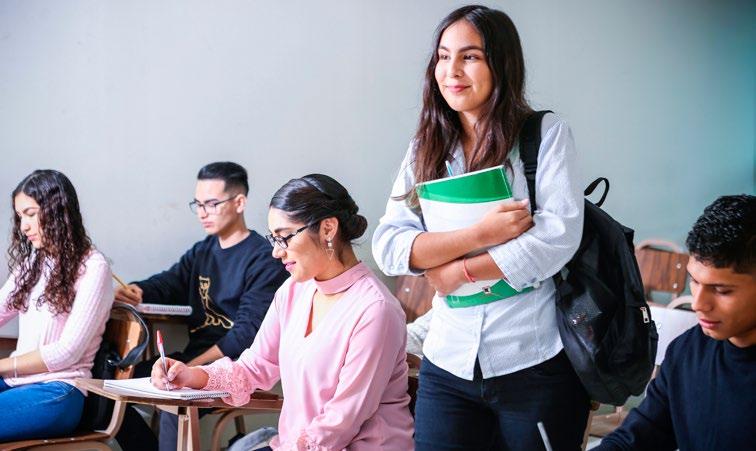
Many roads lead to recognition
NOKUT recognises foreign qualifications from vocational training at upper secondary schools and qualifications corresponding to the tertiary vocational college level, to university colleges and universities – all the way up to the PhD level.
“Through our work, we make it easier for people with foreign qualifications to gain access to the Norwegian labour market and education sector. At the same time, we help employers and educational institutions to trust that a person has the necessary qualifications to be hired or admitted to a study programme,” says Acting Director of Foreign Education Helén Sophie Haugen. NOKUT uses several methods to provide holders of foreign qualifications with documentation of their competence. NOKUT’s recognition scheme for foreign higher education has been around as long as NOKUT has existed, and is the largest in terms of number of applications. In 2019, there were 6,596 applications. During the year, we recognised a total of 7,302 applications. It is important that everyone who applies to NOKUT should have a real opportunity to have their qualifications assessed, regardless of the status of their documentation.
“This is why we have developed a recognition scheme for people without verifiable documentation, called the UVD procedure, where we use experts to interview applicants. In 2019, 110 cases were referred to UVD, and we made 82 recognition decisions,” explains Haugen.
For those applicants who are not eligible for the UVD procedure, we perform a qualifications assessment in which the applicant receives a document containing information on the highest achieved qualification, work experience and language skills. In addition, we provide guidance on the way forward. In 2019, 50 cases were referred to this assessment scheme, and we issued 36 qualifications assessments.
“We have gained solid experience and strong expertise, and we have received acknowledgement internationally for establishing alternative recognition schemes for applicants with insufficiently documented education,” says Haugen.
For vocational training, we work closely with stakeholders in the world of work. An expert committee has been appointed for each type of qualification, which then advises NOKUT.
“The scheme was established on the initiative of the social partners, and qualifications that are in high demand in the labour market are given priority. There are about 100 experts assigned by NOKUT to perform these assessments,” she explains.
We received 614 applications for recognition of vocational training in 2019. We processed 806 cases, which is just over 100 more than the year before. The share of recognitions granted also increases every year. In 2019, we approved 306 applications.
“The largest group who received recognition of their qualifications in 2019 were wood products carpenters, followed by motor vehicle mechanics. It shows that our latest expansion was perfectly in line with the needs of the labour market,” says Haugen.
NOKUT is also responsible for the new recognition scheme for foreign qualifications corresponding to the tertiary vocational college level. Read more on page 36.
“The fact that we have such a wide range of methods in use makes us well-equipped to expand our portfolio. From 1 January 2020, we have also been given the responsibility for the recognition of schoolteachers, heads of kindergartens and educational supervisors in kindergartens,” concludes Haugen.
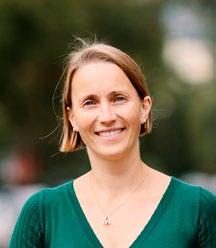
Helén Sophie Haugen Acting Director of Foreign Education
APPROVED APPLICATIONS CORRESPONDING TO NORWEGIAN DEGREES IN 2019
University college graduate
398
Bachelor’s degree
3855
Master´s degree
1066
PhD 69
The processing time for applications of recognition of foreign qualifications varies, depending on the country of origin, the qualification itself and the different recognition schemes. Some applications only take a few hours to process, while others take many months.
“We are constantly working to reduce the processing time so that applicants do not have to wait so long for an answer,” says Acting Director of Foreign Education Helén Sophie Haugen.
Automatic recognition of bachelor’s degrees from the Nordic countries, Poland and Lithuania led to fewer applications from these countries. NOKUT is currently working on a digital solution where applicants can be offered automatic recognition through our application portal. NOKUT is also working to improve and streamline the recognition process in ways other than through digitalisation. Our largest single initiative is the introduction of new criteria for the recognition of foreign higher education. This initiative is ready to launch in spring 2020. We have halved the processing time for complete applications for recognition of foreign education compared with 2018. The processing time has dropped to an average of eleven days.
“We still have work to do both in terms of reducing the time lost before the application process starts internally at NOKUT and in terms of ensuring that applications are complete in the first place. We need to help applicants submit all the documentation NOKUT needs to make a decision. Our goal is to process applications significantly
CASE PROCESSING TIME IN 2019 – DAYS
HIGHER EDUCATION
Total case processing time Complete applications
VOCATIONAL QUALIFICATIONS
Without precedent
With precedent
50 150 250 350 quicker than we do today,” says Haugen.
Use of precedent
When it comes to the recognition scheme for vocational education and training, there are major differences in the case processing time between cases where countries and qualifications have not been previously assessed by NOKUT and cases where there is a precedent. For applications without a precedent, the case processing time in 2019 was 342 days, while for applications with a precedent it was 44 days.
A precedent can be set in two ways: When experts assess a qualification from a given period as equivalent or when the application for recognition is rejected because it does not meet the criteria.
NOKUT can then use the precedent cases as a basis for assessing similar qualifications. For example: If an expert committee has assessed the qualifications for a certain carpenter training programme in Lithuania to be equivalent to the Norwegian qualification, we do not need to reassess this for every new application. Thus, precedent allows us to ensure the equal treatment of applications with the same foreign qualification from a specific period.
On 1 January, a new recognition scheme was launched for foreign tertiary vocational education or qualifications comparable to tertiary vocational education.
“The recognition scheme was introduced because of the lack of a system for assessing education corresponding to the tertiary vocational college level. It should make it easier for people with such education to integrate into the Norwegian society,” says Silje Molander. She is Head of Section for Recognition of VET and TVET in the Departement for Foreign Education.
Requirements for recognition
The requirements for recognition of a qualification as equivalent to a Norwegian tertiary vocational college are that the education must be completed and passed, it must be possible to perform an authenticity assessment including verification if necessary, and the education must be quality assured through accreditation or the like.
The education must be above the upper secondary level, be vocational, and the scope must correspond to Norwegian vocational college education, i.e. six months to three years.
APPLICATIONS FROM AROUND THE WORLD
In total, NOKUT received 742 applications for recognition of qualifications from 85 countries. The five countries with the most applications were Poland, Syria, Lithuania, the UK and Sweden. We approved 124 applications, whereas 399 were rejected. The main reasons for rejections were an inadequate scope or level of education for qualifications.
NOKUT assesses whether the foreign qualification can be recognised as Norwegian tertiary vocational education. We also create a tertiary vocational education profile to determine what the qualifications are used for in the country of origin.
“The new scheme allows people with foreign education to use their education to work in Norway. Recognised qualifications can also qualify for admission to a Norwegian university college or university,” she continues.
Silje Molander
Head of Section for Recognition of VET and TVET in the Departement for Foreign Education
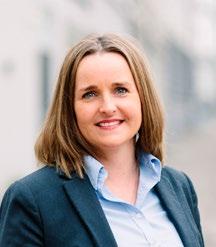
The countries with the highest number of recognised qualifications at the end of 2019 were Lithuania, Poland, Syria, Sweden and Russia.
“In the case of many countries, it is challenging to distinguish between education corresponding to tertiary vocational education, higher education
and vocational training, largely because education is organised differently in various countries. Thus, many foreign applicants don’t know what a Norwegian education at a tertiary vocational level entails,” explains Molander.
CHALLENGING
Many of the applications are difficult to verify, and it takes time to evaluate the qualifications.
“Particularly challenging are qualifications from countries that have undergone reforms and regime changes in recent times. Another challenge are qualifications obtained in countries that are currently affected by conflict,” says Molander.

According to Molander, another challenge is that NOKUT’s decision must state which profession and which industry or sector the foreign tertiary vocational education qualifies for in the country of origin. The labour market in other countries, not least outside Europe, is often very different from what we have here in Norway, and it is difficult to obtain this kind of information.
“We continuously work to establish good networks that can help us with the information we need to make decisions. This can take time, so before these networks are in place, we have to focus on solving one challenge at a time,” concludes Molander.
TOP TEN APPLICANT COUNTRIES IN 2019
Poland
Syria Lithuania
Lativa Sweden United Kingdom
Russia Serbia Turkey Germany
158
78
67
21
17
17
15
15
14
10
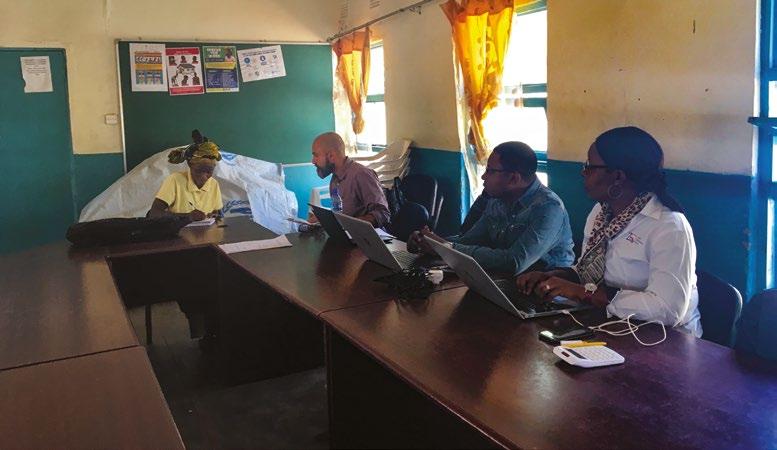
In the autumn of 2019, UNESCO successfully tested its first qualifications passport project in Zambia. Now they plan to extend the scheme.
At the UNESCO General Conference in Paris in November, the first eleven globally recognised qualifications passports were issued. This is the result of an ongoing pilot project in Zambia. At the same time, it was decided that UNESCO’s pilot project would be extended to Iraq and Colombia. The qualifications passport for refugees is a standardised statement that contains information about the applicant’s highest qualifications, work experience and language skills, as well as advice and guidance on how they should proceed moving forward. The goal is to facilitate applicants’ opportunity to work or continue their studies, improve their language skills, or apply for formal recognition or authorisation if they still need it.
METHOD DEVELOPED BY NOKUT
The method behind the qualifications passports was developed by NOKUT in the wake of the 2015 refugee crisis, when there was a great need to map the skills of newly arrived refugees. The Council of Europe quickly took an interest in the project and has developed its own qualifications passports based on NOKUT’s method.
Marina Malgina, Head of Section for Interview-based Procedures in the Department for Foreign Education, has been central to the work on the qualification passports, from when the idea was first launched to the current pilot project in Zambia.
“As soon as the idea of qualifications passports was launched, we realised that it could be an intergovernmental solution to an intergovernmental challenge. It is amazing that UNESCO
Autumn 2019 in Zambia: A refugee from DR Congo is interviewed by Senior Adviser Marius Jensen from NOKUT and two colleagues from our sister office ZAQA in Zambia.
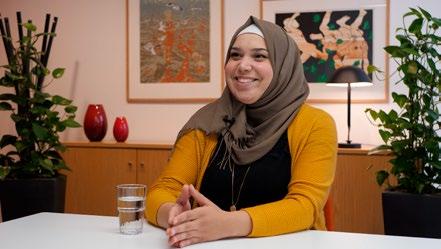
Anwar Horani
Anwar Horani was born and raised in Syria and graduated from Al-Baath University in Syria as a physiotherapist in 2010. Horani and her husband were forced to flee their homeland as a result of the civil war and ended up in a refugee camp in Greece, where she came into contact with EQPR (European Qualifications Passport for Refugees), which is a project led by the Council of Europe. The EQPR is based on a method developed by NOKUT.
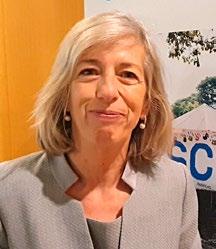
In March 2017, Horani became one of the first to receive an EQPR, and thanks to this she got the opportunity to participate in the International Health course at OsloMet in 2018. While she was taking the course, she received an internship as a physiotherapist at the university clinic. Horani has worked in the Health Forum for Women in the Sagene district of Oslo since March 2018. She is also a counsellor in the Norwegian Diabetes Association.
Here, you can watch an interview with Horani which was shown at the UN General Assembly, where NOKUT presented the qualifications passport: https:// www.youtube.com/watch?v=u-BB9leahFU
Stefania Giannini, UNESCO
has started work on qualifications passports based on our method and experiences,” says Malgina.
FEW REFUGEES HAVE ACCESS TO EDUCATION
Today, only three per cent of eligible refugees among the world’s millions of refugees have access to higher education. It is a difficult situation for those concerned, but losing out on competent and skilled people is also a challenge for society at large.
“The Qualifications passport for refugees is a vital tool to make sure we don’t miss out on more talent and to safeguard education as a human right,” explained Stefania Giannini, Assistant Director-General for Educa tion in UNESCO, when the project was presented at the General Conference.
FUNDING FROM NORWAY
The Norwegian Ministry of Education and Research has provided financial support to UNESCO for the implemen tation of the pilot project and has now confirmed that they will continue to provide funding for the project in the future. NOKUT will also continue to be involved in the UNESCO project, and we are looking forward to contributing further with our experience and knowledge.
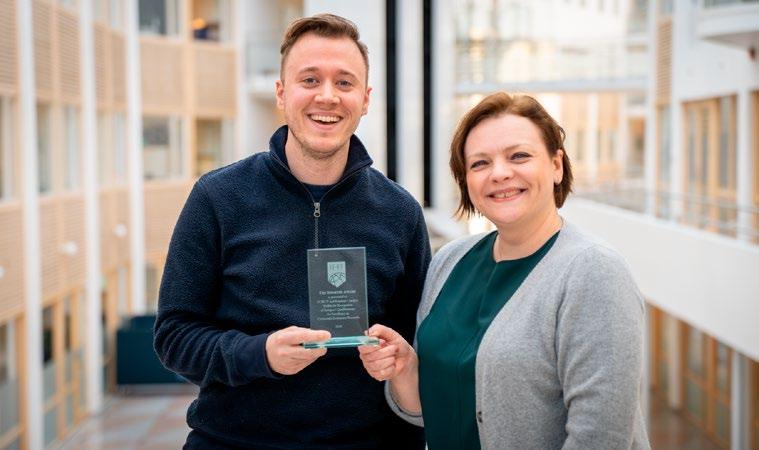
NOKUT has the honour of being the first ever winner of the Sepmeyer Award for Excellence in Credential Evaluation Research. Adviser Erlend Bern Aaser and Head of Section Marina Malgina, Section for Inteview-based Procedures.
Award for NOKUT’s work on the qualifications recognition scheme for refugees
NOKUT’s work on the recognition of refugees’ qualifications is being noticed and appreciated by the international community. In July, the project Toolkit for Recognition of Refugees’ Qualifications received the Sepmeyer Award for Excellence in Credential Evaluation Research.
“It’s a toolkit that simplifies the recognition of refugees’ qualifications, both for applicants and for those performing the assessment. We have received good feedback on use of the toolkit. Among other things, the project has been referred to as a best practice for the recognition of refugees’ qualifications in the supplementary text of the Lisbon Recognition Convention,” explains Marina Malgina, Project Manager for the toolkit project and Head of Inteview-based Procedures in the Department for Foreign Education.
The methods were developed as part of an Erasmus+ project (2016–2018) led by NOKUT. With many years of experience in the field, NOKUT has helped to develop a common European practice for recognition. This was done in collaboration with the ENIC-NARIC offices ArmENIC (Armenia), CIEP (France), CIMEA (Italy), NUFFIC (the Netherlands), UK NARIC (United Kingdom), UHR (Sweden) and KMK (Germany). The Sepmeyer Award for Excellence in Credential Evaluation Research is a newly created award, and NOKUT had the honour of being the first winner. The award was presented by the American credentials evaluation service International Education Research Foundation (IERF). The award was created in connection with IERF’s 50th anniversary and is named after Inez Sepmeyer, one of IERF’s two founders.
Bachelor’s and doctoral degrees from Poland and Lithuania now automatically recognised
NOKUT’s scheme for automatic recognition of bachelor’s and doctoral degrees was expanded in November 2019 to include education programmes from Poland and Lithuania.
NOKUT has been testing a optional scheme for automatic recognition of degrees from the Nordic countries since the summer of 2018. In November, the scheme was extended to apply to candidates from Poland and Lithuania who have degrees corresponding to Norwegian bachelor’s and doctoral degrees. Master’s degrees are not included in this round as the two countries have several types of master’s degrees that are difficult to compare with Norwegian degrees.
Automatic recognition means that the candidates can download a document from NOKUT’s website that shows that their degree is automatically recognised in Norway.
The document confirms that the degree is equivalent to a Norwegian degree in level and scope, and that it is not necessary to apply to NOKUT for recognition.
“It immediately provides clarification as to what the foreign education corresponds to in Norway. This can be useful when applying for a job or further education,” says Joachim Gümüs Kallevig, Head of Section for Recognition of Higher Education in the Department for Foreign Education.
POSITIVE EXPERIENCE
Our experience with automatic recognition for the Nordic countries has
Joachim Gümüs Kallevig Head of Section for Recognition of Higher Education in the Department for Foreign Education

been positive. We now have fewer applicants from these countries, and many confirmation documents were downloaded during the first year of the scheme.
“We saw an effect almost immediately after the scheme was launched. As this is ground-breaking work both in Norway and in Europe, we were unsure of how this offer would be received, but the experience has been entirely positive!”
Poland and Lithuania are among the countries from which NOKUT receives the most applications for recognition of education. In total, these countries account for 15 per cent of all applications received by NOKUT. About half of these could be included in the automatic recognition scheme, and there has already been a decline in the number of applicants from Poland.
“Since the first weeks of automatic recognition for Polish and Lithuanian qualifications, we are seeing the same trend as we saw with Nordic qualifications. These experiences are important in order to extend the scheme further. This will allow us to offer this service to even more people who have come to Norway to work or continue their studies,” concludes Gümüs Kallevig.
IN LINE WITH EUROPEAN GOALS
UThe ministries of education from the 48 countries participating in the Bologna Process have adopted a common goal of automatic recognition of comparable degrees within the European Higher Education Area. In the EU, work is also underway to have degrees automatically recognised between member countries. NOKUT’s work in this area puts Norway in a good position to achieve this goal. It is also part of NOKUT’s strategy to keep expanding the scheme and to take more of a leadership role with regard to automatic recognition of education.



